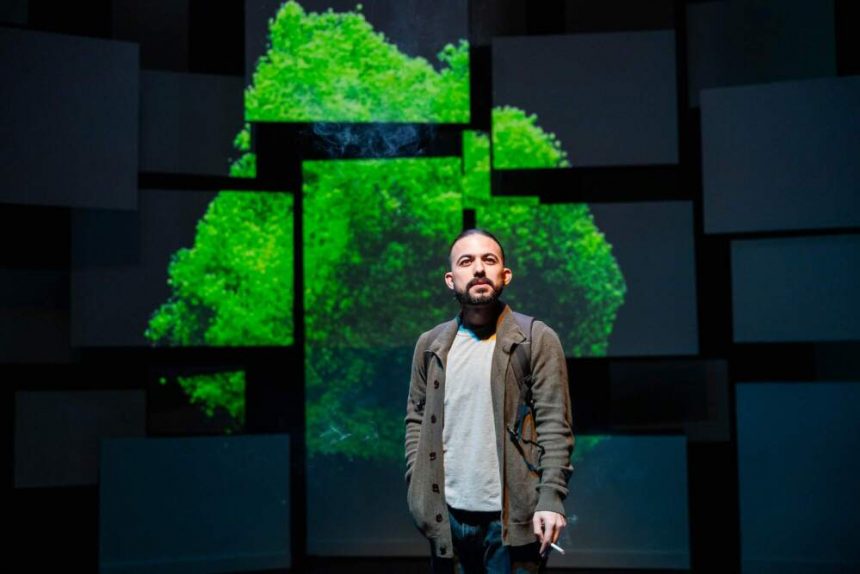The longer one lives, the more opportunities there are to act as a caregiver for a loved one in need. Though it’s not a glamorous job (it’s downright difficult), luckily, there are technological tools that can help. Reminders to take medicine or to call a doctor can be set with Siri or Alexa, family members can use cameras to converse and to ensure a loved one’s safety, and there are multiple ways that artificial intelligence (AI) can be used to perform tasks, make predictions and even get speedier diagnoses of various diseases, particularly cancer.
But even with all its promise, how much should technology take on? Will privacy and other ethical lines continue to blur? Does technology’s presence in health care factor in that some people might do better than their prognosis? What of hope and faith? Questions like these shape Francisco Mendoza’s probing play “Machine Learning” (through Feb. 25 at Central Square Theater), where a son aims to help his father, who is battling cancer and a penchant for alcohol, with an app he named Arnold (a perfectly machine-sounding Matthew Zahnzinger). The Central Square production was produced in partnership with Teatro Chelsea, which Rivera helms, and the Catalyst Collaborative@MIT.
What’s interesting about the bilingual show is that it doesn’t attempt to present definitive answers to the imminent questions about technology’s use in health care. However, through the lens of a father and son (Gabriel and Jorge) struggling to connect, it does present a balanced case — not too heavy laden with tech speak so that it’s unapproachable — that shows how leaning too much on tech alone could help or hurt.
Machine Learning (ML) is a type of AI that isn’t necessarily programmed to perform a specific task but can learn to make decisions or predictions over time as it’s exposed to more data. In the play Jorge (Armando Rivera) lands a paid fellowship and uses his app, Arnold (ML), to help manage his dad, Gabriel (Jorge Alberto Rubio) — from pills to predictions and recommendations.
It’s a solid production under Gabriel Vega Weissman’s direction. Multiple suspended screens are aglow with a green churning image when Arnold speaks. The actor voicing Arnold is offstage. The clever (and on-genre) use of video and projections by SeifAllah Salotto-Cristobal and white screen-shaped squares that hide furniture and other props (courtesy of scenic designer Janie E. Howland and props person Julia Wonkka) bring the audience through multiple settings.
There are even a few telling visits into the past — a terrifying car accident, Gabriel and a young Jorge watching “The Terminator” or Jorge’s visit to his dad’s house after Gabriel and his mom divorced — that highlight how the chasm between them has widened and seems uncrossable. In these scenes, the acting chops of a young Jorge, wonderfully rendered by Xavier Rosario, get to shine.
Despite their challenges, Jorge and Gabriel still love each other. What Jorge lacks when it comes to expressing sentimental emotion, he funnels into monitoring and secretly hoping to save his dad. But what Jorge forgets, like many of us sometimes do, is that we all have a responsibility in relationships. Everyone has the choice to talk about what ails them, to unburden themselves, and often, to forgive. Not doing so can lead to torment.
But most of all, Jorge momentarily forgets that the use of tech doesn’t mean that the action or inaction of AI will always be accurate or helpful or that it will always do what one hopes. After all, the data AI is driven by is derived from humans with all our innovation and intelligence as well as our biases and shortcomings.
“Machine Learning” at Central Square Theater shows through Feb. 25. The play was produced in partnership with Teatro Chelsea and the Catalyst Collaborative@MIT.



